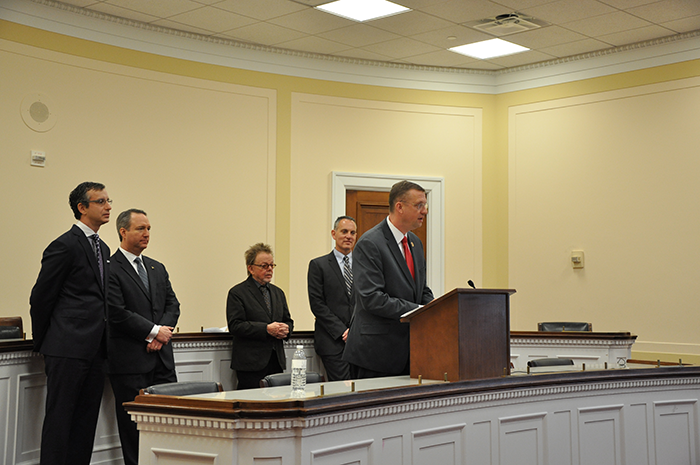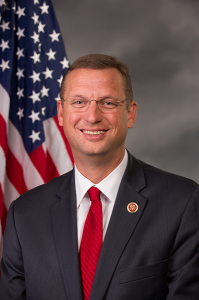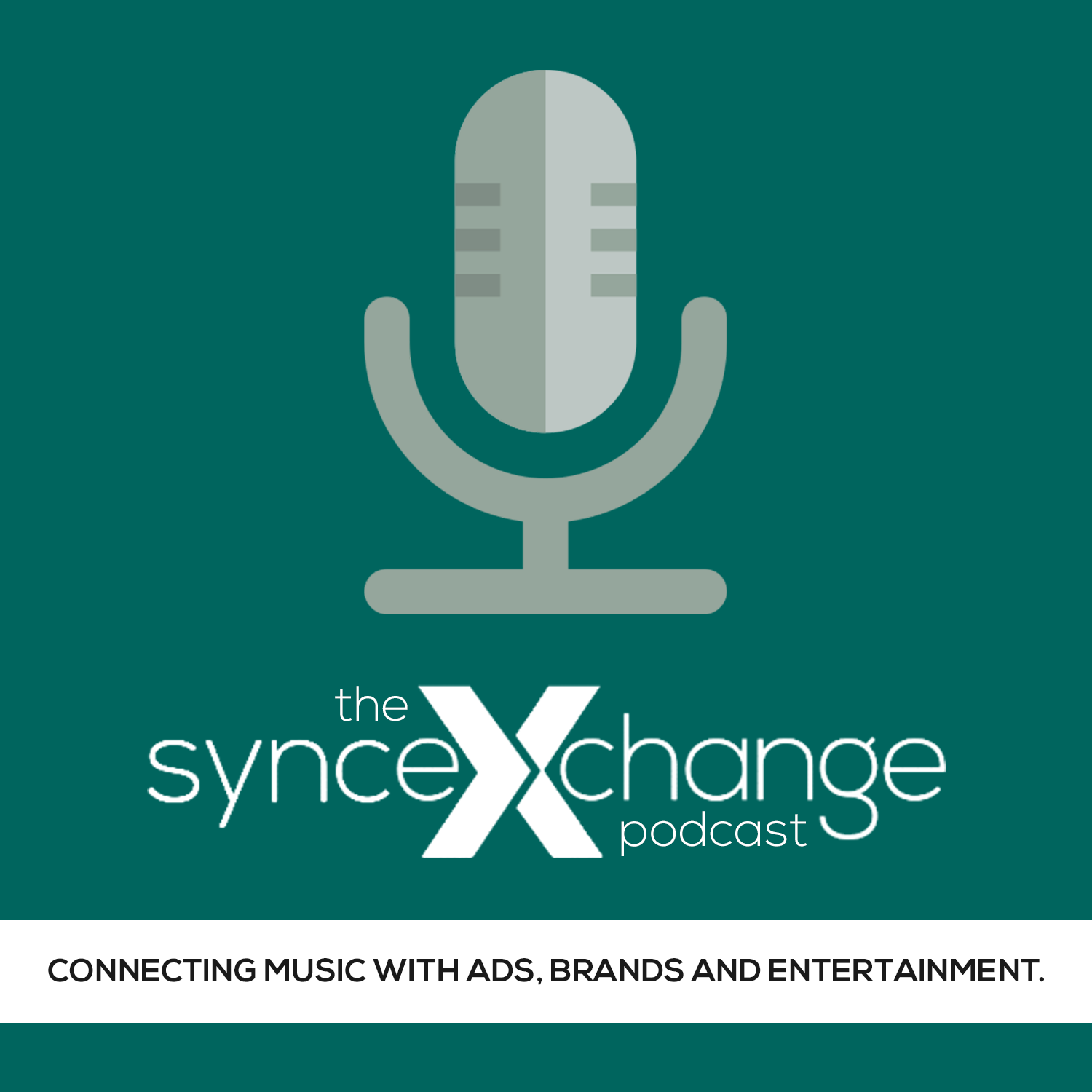February 25, Congressman Doug Collins (R-GA), introduced to Congress the Songwriter Equity Act (SEA) to establish a more fair and equitable rate of songwriter compensation based on free market factors.
Here’s the breakdown:
The aim of the SEA is to revise two antiquated portions of the Copyright Act, specifically Section 114(i) and Section 115, which define the ways and means that the Copyright Royalty Board (CRB – a Federal “rate court” consisting of three judges) uses when setting mechanical licensing rates of songwriter remuneration for the use of their works across live, offline and digital media.
The SEA would revise Section 114(i) to allow the CRB to consider sound recording rates as evidence in their benchmarking of mechanical rates, something the CRB is currently forbidden from doing.
Today the CRB uses the following factors when calculating mechanical rates:
- Maximizing song availability of song usages;
- Fair return to the copyright owner;
- Fair income to song user;
- And minimization of industry disruption
What these general terms actually mean is anyone’s guess, and subject to wide interpretation.
And, while these factors will still be used in the calculation of mechanical rates, if the SEA is passed the CRB will also be able to consider empirical licensing data from others types of licenses (sound, sync, etc.) based on market factors, as presented in evidence by the Performance Rights Organizations (PROs) and others.
Additionally, it aims to revise Section 115, which has not been amended since 1909 when it was enacted to remunerate songwriters from the sales of player piano reels, (seriously) to establish a statutory rate of compensation for songwriters that reflects current market value.
Considering that in more than a century, the compulsory mechanical rate has only risen by 450% (from 2 cents in 1909 to 9.1 cents today), while overall inflation has risen by over 2300% in the same period (which would result in a compulsory mechanical rate of ~$0.50 if adjusted strictly for inflation), clearly some reform in the way the CRB calculates compulsory rates is needed.
The need for songwriter royalty remuneration reform is brought into further relief when you consider that the rates in other countries are typically between 8%-10% — which is a good deal more than 9.1 cents by any benchmark.
It’s no surprise that the SEA has received strong support from The National Music Publishers Association (NMPA) and the PROs, with BMI, ASCAP and SESAC all singing its praises, and even the RIAA has chimed in positively.

From L-R: David Israelite (NMPA), Daryl Friedman (Recording Academy), Paul Williams (ASCAP), Michael O’Neill (BMI), Congressman Collins at podium.
And though it’s highly unlikely we’ll see mechanical rates jump more than fivefold from their current rate if the SEA becomes law to meet the rise in inflation since 1909, it seems clear that the CRB should be compelled to consider market factors and rates across all forms of licensing when calculating mechanical rates.
This is what the SEA will allow the CRB to do. And that’s a good thing.
Following is our interview with Congressman Collins:
MF: Congressman Collins, what was the inspiration for the Songwriter Equity Act?
Congressman Collins: It was a combination of personal and practical. The idea of the SEA is to create a more level playing field for musicians and songwriters so they can get the pay they deserve.
From a practical point of view, in my state alone (Georgia), there are more than 50,000 songwriters across Gospel, Pop, Rock, Hip-Hop R&B and every type of music, and I want to help them succeed as musicians.
After discussions with the PROs and songwriters, we realized that in the current system, the government is causing inequities for publishers and songwriters, and our goal with the SEA is to change this by creating a better playing field for the people that make music.
From a personal point of view, my wife’s family has musicians in Gospel, and seeing what they go through in getting music to the world also inspired what we’re doing with the SEA.
MF: From a practical level, how will the SEA create a more level playing field for songwriters?
Congressman Collins: By changing the current law so that the courts (The Copyright Royalty Board) consider other standards and license rates (like those for sound recordings), to allow songwriters to receive fair market value for their works from mechanical licenses.
The goal is to make deals for songwriter compensation fair for the people making music rather than based on a compulsory rate.
MF: Similar to the way sync licenses work in the US?
Congressman Collins: Exactly. In the sync field, the deals are determined by what the market will bear, based on market factors.
By compelling the CRB to consider market factors in determining songwriter royalties, we aim to cerate a more level and fair playing field for the people that create music.
MF: So why has it taken so long for Congress to take action on this point? After all, Section 115 of the Copyright Act was written in 1909 to regulate player piano rolls, and over a century later the mechanical license fees have only gone up 7.1 cents (from 2 cents in 1909 to 9.1 cents today).
Congressman Collins: It’s a complicated issue, and it has taken people a long time to react to all the changes in the industry, take a look at how it was affecting the business and the art and decide how we could try to change things for the better.
MF: And how does the SEA fit into the Copyright Act as a whole?
Congressman Collins: Basically, it places a marker within the Copyright Act saying, ‘here’s what we think is a good fix,’ as well as providing guidelines on how the bill will be put together, with all the important players in developing the legislation.
MF: And what kind of support does the Act have from the industry?
Congressman Collins: All the PROs (ASCAP, BMI and SESAC) are very supportive of the SEA, the RIAA is part of the discussion as well, and these discussions have been good and positive with industry veterans working in a solid fashion.
MF: And what about Congressional support? Is there support across the aisle?
Congressman Collins: We’ve had good conversations across the aisle, and I believe we’re going to see strong support for the SEA.
MF: Finally, what would you like to see the act accomplish for songwriters?
Congressman Collins: To incentivize them, give them the encouragement and the strength to get the songs in their spirit out to the world and to give a better future for songwriters in the music business.
It’s the saddest thing for people not to feel they have a chance to share the song in their heart and bring it out to the world. We need to help them get it out.




